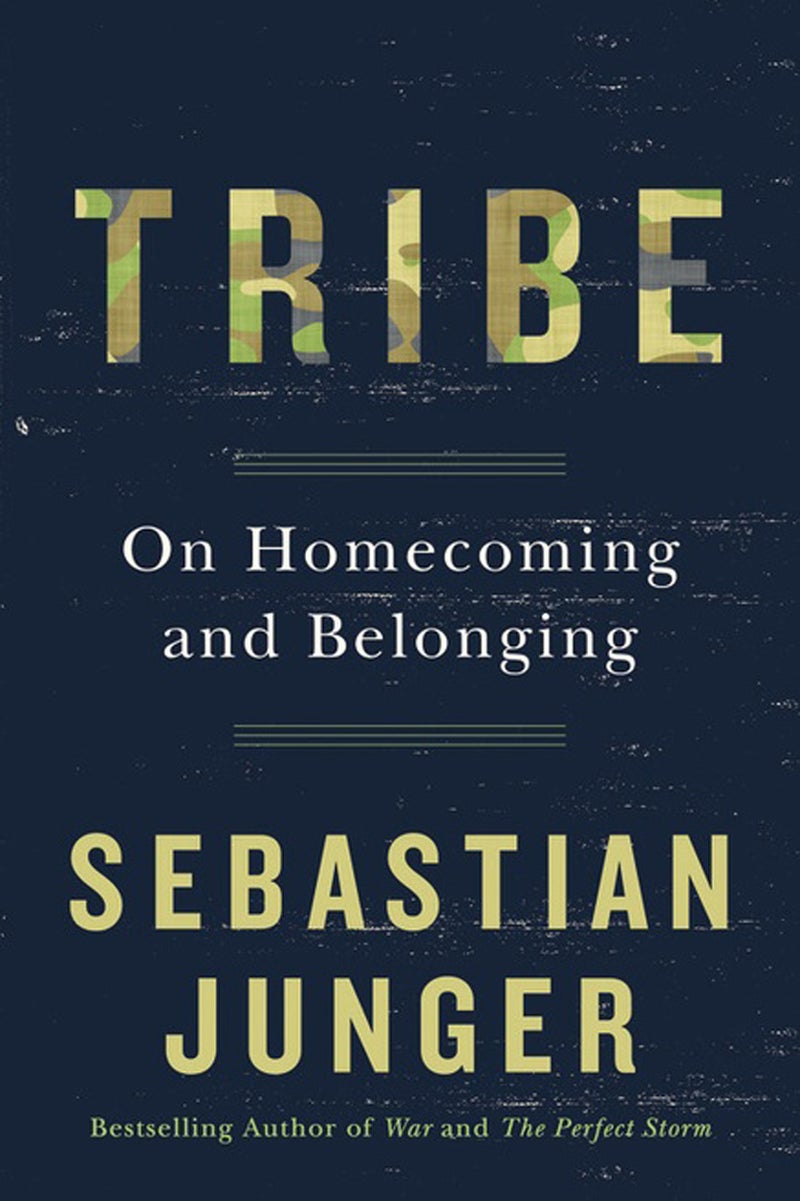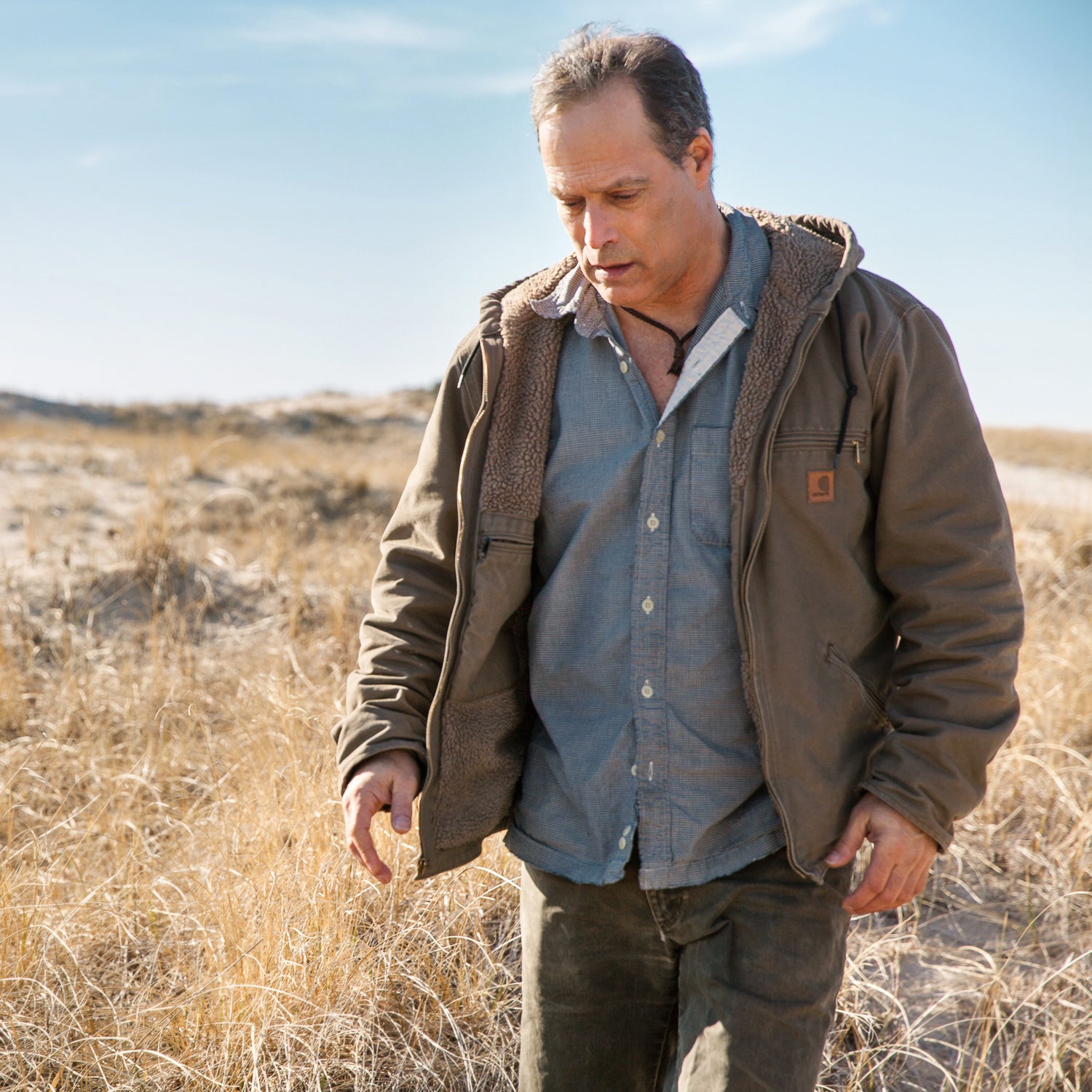Five years ago, formally retired from war reporting. The decision was prompted by the death of his close friend and colleague Tim Hetherington, who had��just��been killed in Misrata, Libya, during the civil war. After more than two decades covering conflicts around the world, during which��he's been detained��and rocked by an IED��while riding in a Humvee, the last division��separating Junger from the soldiers he was covering had finally fallen: he had lost a brother in arms.��
Since then, Junger’s work has mainly grappled with the truths he’s gleaned from war zones. Drawing from the year he spent embedded with Hetherington in Afghanistan’s Korengal Valley, Junger released a trilogy of award-winning documentaries on the war in Afghanistan and its effects with (2010),����(2014), and (2014). On May 24, he’ll conclude his meditation on the ravages of combat with his new book, .
“Tribe is the last I’ll write about war, journalistically,” Junger told me when we recently met at his summer home on Cape Cod. “I’m not going back anymore…This is probably the end of it.” What the author reveals in Tribe goes beyond the battlefield, exploring why the roots of PTSD seen in American soldiers might have as much to do with the nature of our society as it does with combat.
Here, I talked to Junger about his time covering combat and what he’s learned about the effects of war since returning home.
OUTSIDE: You’ve written extensively about why many soldiers miss the battlefield. What did you miss about it?
JUNGER: When I was out in the Korengal Valley with those guys, it was very hard to come back [to civilian life]. I was coming back to some nice things—I had a good marriage and nice apartment—but I really missed the closeness and the intimacy of platoon life at a combat outpost. It’s crazy, but for all the deprivation out there, personally it was incredibly nice. But that’s eight years ago now.��
��
Has it been hard to stay away from war reporting?
No, I never looked back once I crossed over. Had Tim died earlier in my life, earlier in my career, I think I would have not made that decision. But by the time he died, I was married and I had answered a lot of questions I had about war and about myself.��
What did removing yourself from combat allow you to better understand?
I think if I kept on war reporting, I never could have written Tribe. My mind wouldn’t have been in that place that it had to be in to think about what it’s like to live in civilian society. War reporting is very dynamic, very exciting, occasionally traumatizing. It’s emotionally extreme in a lot of ways. Once I stopped war reporting, I was able to think with a little more nuance and some more quietness. Out of that came these thoughts that I had about my society.��
“What it allows veterans to do��is say, ‘If I’m not feeling good in my life, it’s not necessarily that I have a problem. I’m living in an alienating, fractured society that’s psychologically hard on everybody.’”
Such as?
I think we’re all conditioned to think that modern society is the culmination of centuries of progress that has delivered us to this sort of moment of human potential and happiness. It’s done a lot of extraordinary things—I’m not advocating a sort of technological regression—but it definitely has not put people in a better place emotionally.��
How do you mean?
Our towns are constructed around the automobile in as isolating a way as possible. Families live in real isolation from one another. It’s hard to break that down until a tornado comes and suddenly everyone is acting tribally and people have this weird nostalgia for that.
So society has drifted away from the tribal sense of community, and it’s to our emotional and psychological detriment?��
Suicide, depression, PTSD, child abuse—basically none of those things existed in tribal society.��
What does this have to do with being a soldier?
They have this close tribal intense situation in a hostile environment. It’s super charged with adrenaline and intimacy and inter-reliance—that’s exactly tribal life. And they don’t want to go back to the great American suburb.��

How does recognizing that help the situation?
At the very least, what it allows veterans to do, people to do, is say, ‘If I’m not feeling good in my life, in my world, it’s not necessarily that I have a problem. I’m living in an alienating, fractured society that’s psychologically hard on everybody.’ And even just knowing that—it’s not me, it’s society—takes off a psychological burden.
Do you see yourself as an advocate for veterans?
As long as I’m a journalist, I feel like I shouldn’t tell my readers, I shouldn’t tell the country, what to do. I’m not an advocate. I don’t suggest policy. But I can lay out what seems to make sense and what the costs and benefits are to things. What does not make sense is the astronomically high PTSD rates [in veterans]. Why is that happening? By explaining one possible reason for those high rates, the thoughtful reader might come to the conclusion that we should be more cohesive as a society and that might help.��
What else is preventing this cohesiveness?
Society has produced a culture of fame and a culture of greed. And people crush their own humanity in order to achieve one of those two things: money or fame. They’re not breaking any laws, but I think it’s a bad trait. The quality of life, in real human terms, of someone that puts their financial gain over the welfare of other people—I don’t believe in heaven or hell, I’m an atheist—but in some way I think they’re going to hell. And I think they go to hell during their lifetime.
Along those lines, Tribe touches upon an overall disconnectedness people have, not just with veterans, but within society as a whole.
I realized researching this book, the economy takes a downturn, the unemployment rate doubles, and suddenly 5,000 people are dead that wouldn’t be dead otherwise because they killed themselves. So there’s real consequences. You don’t have to be on the battlefield to have people’s lives ruined. Everyone is worried about veteran suicide, but what about the 5,000 people who died because they lost their jobs? That’s all the causalities of Iraq and Afghanistan combined in one year, just because the economy dipped. It’s very easy to be distracted by the drama of warfare, but it requires a certain respect for ordinary lives to understand that for better or for worse there’s an awful lot of drama everywhere. It isn’t just gunfire.
What do you want readers to take away with from Tribe?
To think about their lives in real human terms. Do I feel close to people? Who would I give my life for? Obviously your wife and kids. But anyone else? Is that it? Would you risk your life for your community? No? Then you don’t really live in a community. If you are not willing to risk your life, then it’s not really a community in the very ancient sense of the word. You’re living in a modern version of the community in which people care more about themselves than the collective. It’s just to get people thinking.
Tribe comes from HarperCollins.
Robert Cocuzzo is the author of , due out this August.��
*CORRECTION: A previous version of this story incorrectly stated that Junger had been shot and held hostage while on assignment.


